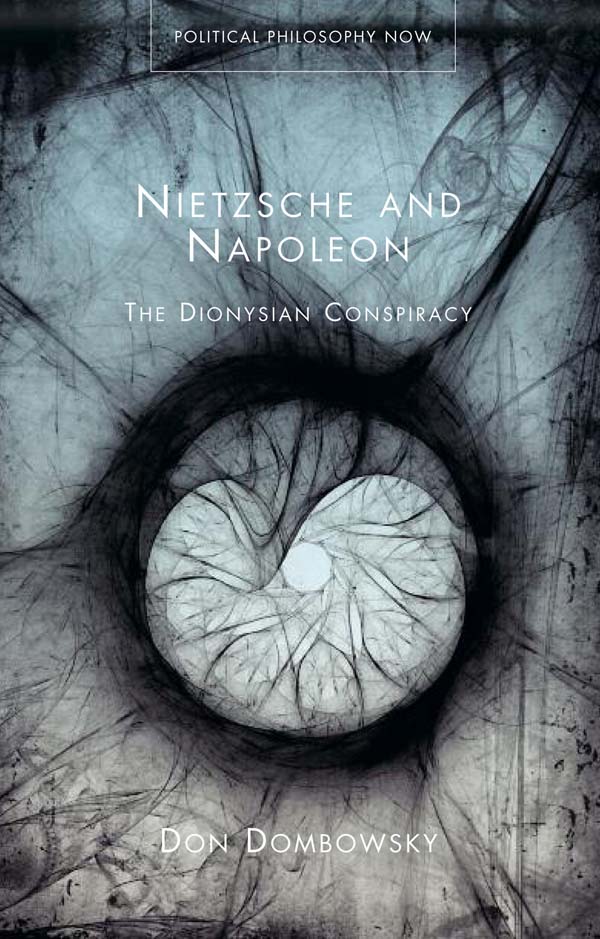Nietzsche and Napoleon
The Dionysian Conspiracy
Awdur(on) Don Dombowsky
Iaith: Saesneg
Dosbarthiad(au): History
Cyfres: Political Philosophy Now
- Medi 2014 · 240 tudalen ·216x138mm
- · Clawr Caled - 9781783160969
- · eLyfr - pdf - 9781783160976
- · eLyfr - epub - 9781783160983
Mae'r llyfr hwn yn dadlau bod syniadau gwleidyddol Nietzsche a'i model arfaethedig o lywodraethu yn Fonapartaidd yn ei hanfod: ewyllys unbenaethol dan gochl rheolaeth boblogaidd.
Introduction: The Dionysian Conspiracy
1. Sources, Cults and Criticism: Nietzsche’s Portrait of Napoleon
1. In the Gilded Orbit of the ‘Ideal Artists’
2. Nietzsche’s Napoleon: Against Thomas Carlyle’s Cult of the Hero
3. Nietzsche’s Napoleon: A Polemic
4. The Artist of Government
2. Aristocratic Radicalism as a Species of Bonapartism
1. From Character-type to Structure
2. Nietzsche’s Understanding of Bonapartism
3. Nietzsche and the Underlying Structures of the Bonapartist Empire (1799–1815)
4. Aristocratic Radicalism
3. Napoleon III: ‘déshonneur’
1. Caesarism
2. Nietzsche and the Underlying Structures of the Second Empire (1851–1870)
3. Nietzsche’s Rejection of Napoleon III
4. Nietzsche’s Immanent Critique of Bonapartism
5. Nietzsche’s Radical Bonapartist Alliance
Conclusion: The Imperial European Future


